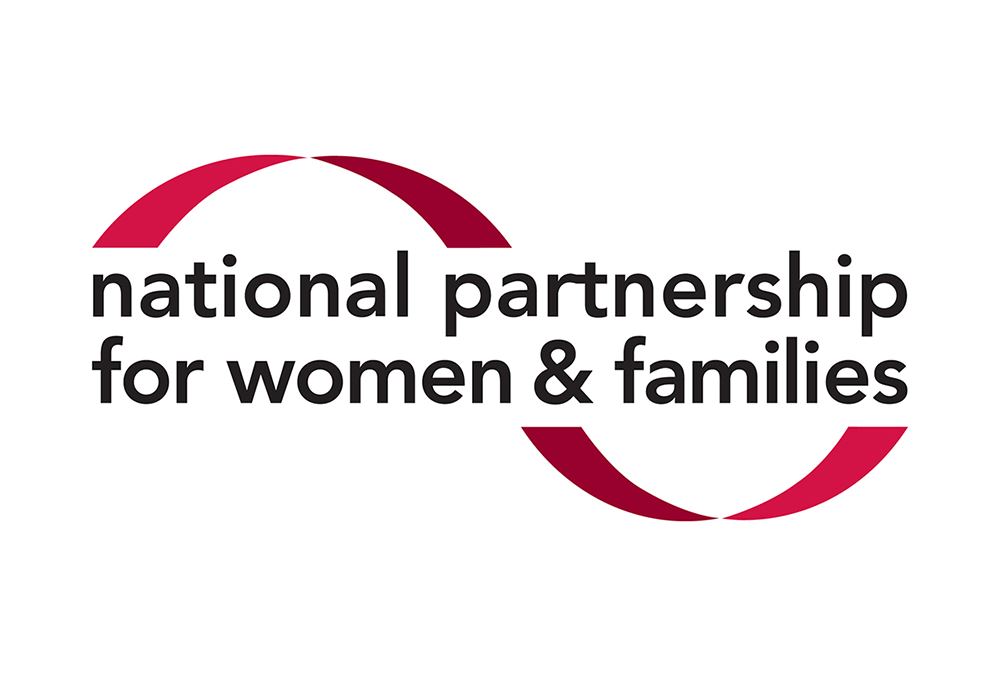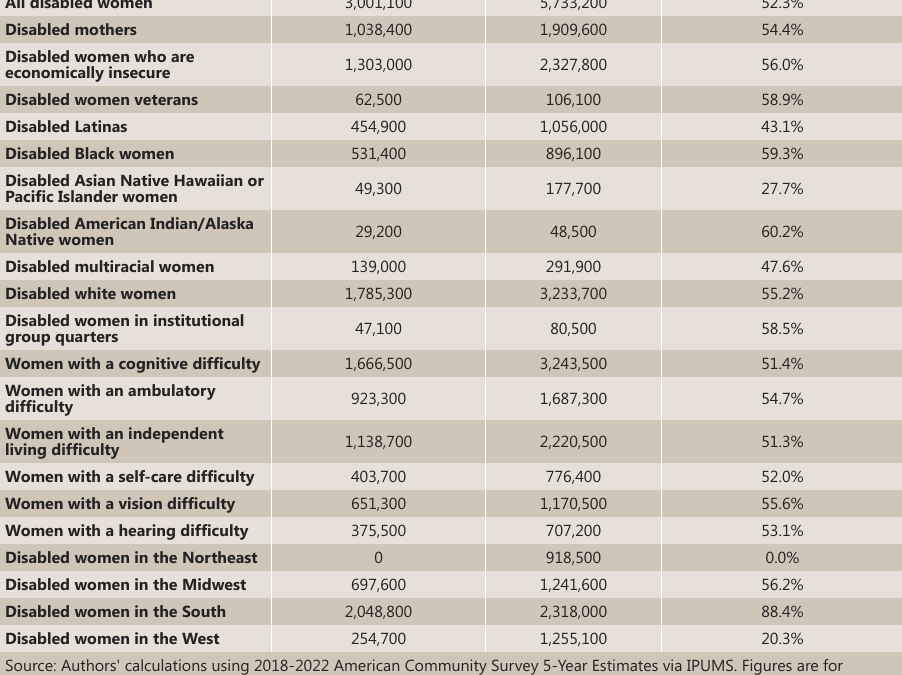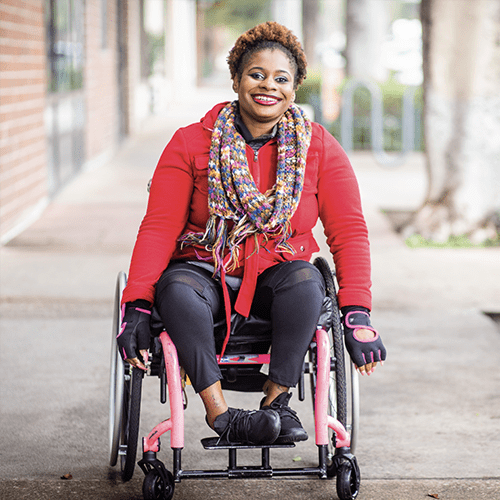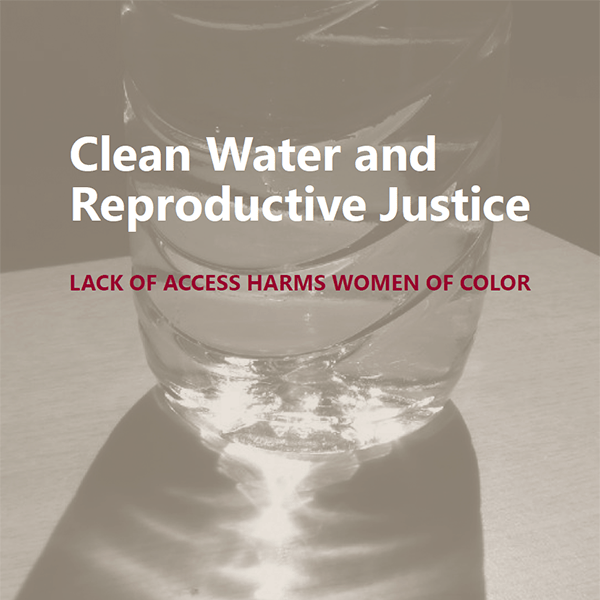In order to ensure pregnant people can exercise full autonomy over their bodies and lives on their own terms and without fear of criminalization, data privacy protections are urgently needed.

With Abortion on the Ballot in November, 16.5 Million Women Could be Impacted
In the November 2024 election, abortion access will be on the ballot in 10 states. Our analysis shows that more than 16.5 million women of reproductive age – 21.9 percent of all women of reproductive age in the U.S. – could be impacted by changes to reproductive rights laws in their state.
Advancing Reproductive Health Privacy, Mitigating Criminalization
The new HIPAA rule prohibits regulated entities from using or disclosing protected health information (PHI) for the purposes of conducting a criminal, civil, or administrative investigation into or imposing liability on anyone for the mere act of seeking, obtaining, providing, or facilitating lawful reproductive health care.

Democracy & Abortion Access: Restrictive Voting Laws Across States Threaten Freedoms
Our research finds that the states with the most restrictive abortion access policies are also the states with the greatest barriers to voting. This brief explores the intersection of state abortion policy and restrictive voting policies, showing how structured inequities are cemented into how our democracy functions to disadvantage women and people of color.
State Abortion Bans Threaten Nearly 7 Million Black Women, Exacerbate the Existing Black Maternal Mortality Crisis
Analysis from the National Partnership for Women & Families and In Our Own Voice: National Black Women’s Reproductive Justice Agenda reveals the harmful impact of Dobbs on Black women. We find that more than 6.7 million Black women – 57 percent of all Black women ages 15-49 – live in the 26 states that have banned or are likely to ban abortion.

State Abortion Bans Harm More Than Three Million Disabled Women
The Dobbs decision has only compounded the longstanding barriers to abortion care that disabled people face, including provider discrimination and lack of training or experience with disabled patients, guardians dictating decisions about their reproductive care, denials of care and assistance among religiously-affiliated service providers and intermediate care facilities, transportation difficulties, inaccessibility in health care facilities, and layers of economic obstacles to affording the costs of care.
State of the Union for Women
The National Partnership for Women & Families and Paid Leave for All created a this new map to show that in all of the states that have taken extreme measures to ban abortion, none of those states offer paid family leave.

Democracy & Abortion Access
In a political landscape that moves the question of abortion access to the states, NPWF demonstrates the connection between the representation of women and women of color in state legislatures and better policy outcomes for those seeking abortions.

Leading the Way
Despite recent challenges, reproductive healthcare providers are often beacons in their communities, persistent in their determination to ensure access to care wherever they can and to deliver care that is of the highest quality. Now is the moment to double down on this commitment to providing excellent and equitable care.

State Abortion Bans Threaten 6.7 Million Latinas
The Dobbs decision has unique impacts on Latina communities.

Las prohibiciones estatales para el aborto amenazan a 6.7 millones de Latinas
La decisión de anular Roe v. Wade ha perjudicado a millones de personas en todo el país, impidiendo su acceso al aborto, alterando su futuro económico y poniendo en riesgo su salud e incluso sus vidas. La decisión de Dobbs tiene impactos únicos en las comunidades Latinas.
State Abortion Bans Harm More Than 15 Million Women of Color
Dobbs v. Jackson Women’s Health Organization is a decision that is about access to essential healthcare, but also much more than that. It is, at its core, a decision — deeply rooted in sexism and racism — about the role women and people who can become pregnant play in our society.
Threats On All Fronts
Analysis showing connections between the lack of abortion access, health care and workplace equity
Using Paid Sick Days for Medication Abortion
The availability of paid sick days for medication abortion is an essential component of ensuring that people can access care that best suits their needs and preferences, and do so in ways that protect both their health and economic security.

Access, Autonomy and Dignity
The issue briefs in this series explore four important areas of reproductive health, rights, and justice for people with disabilities: access to abortion, access to contraception, healthy sexuality and sex education, and the right to parent.

Clean Water and Reproductive Justice
Millions living in the United States face daily exposure to contaminated water sources that present serious risks to reproductive and overall health. And those most at risk are women of color.

Clean Water and Reproductive Justice: Lack of Access Harms Women of Color
Many communities across the country cannot trust the safety of their water and cannot afford to pay more for cleaner water. Frequently, Black, Latinx, Asian American and Pacific Islander communities, lower-income communities, rural communities, and communities living at the intersections of these identities struggle daily to access safe, affordable water, and their health is disproportionately harmed as a result.
Clean Water and Reproductive Justice Policy Solutions
Access to clean water is a human right recognized by the United Nations. It is a public health issue that is deeply connected to maternal and reproductive health.
Lead Poisoning in Flint, Michigan
The water poisoning in Flint caused undeniable harm to residents’ reproductive health. Analyzing health records from 2008 to 2015, researchers found that fertility rates in Flint dropped by 12 percent and fetal deaths rose by 58 percent
Pollution in San Gabriel Valley, California
Over half a million Asian American people and 7,000 Native Hawaiian and Pacific Islander people live in the San Gabriel Valley. This 200 square mile area of Southern California is also home to rampant pollution.

